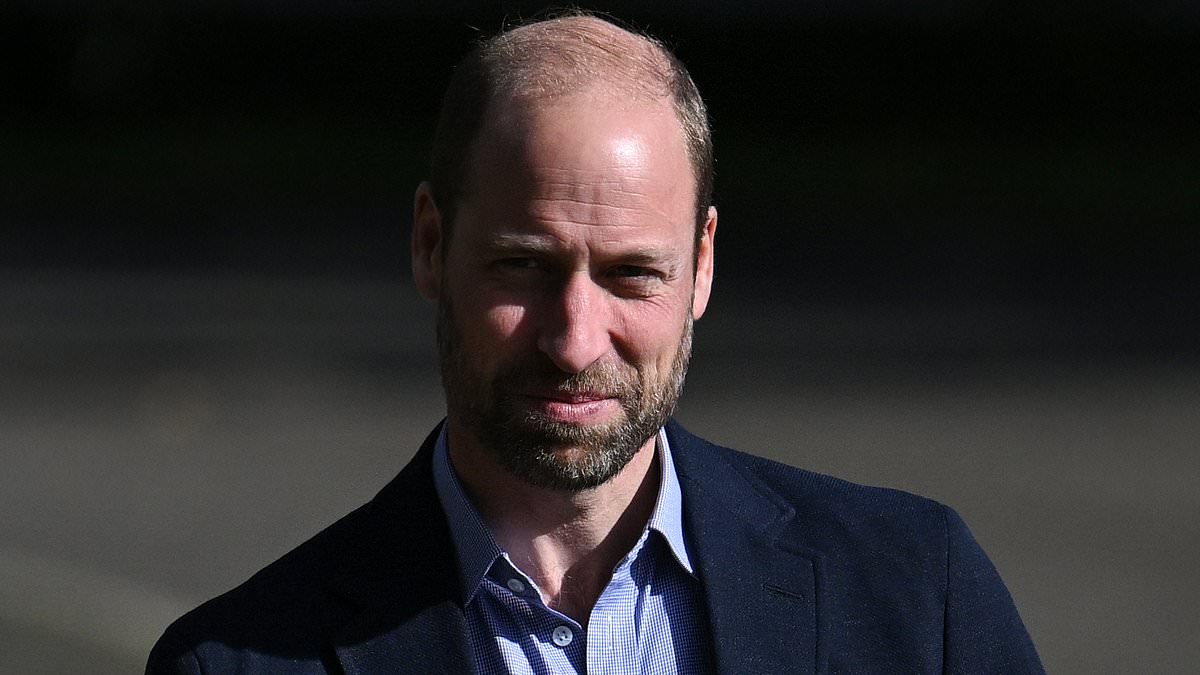Each month, This is Money puts a senior fund or investment manager to task with tough questions for our I’m a fund manager series to find out how they manage their own money.
We want to know where they’d invest for the next year – or even next 10 years – and what pitfalls to avoid.
This week, we spoke to Clare Pleydell-Bouverie, a fund manager at Liontrust Global Technology Fund.

In the hot seat: We quiz Clare Pleydell-Bouverie on the companies she backs, whether Bitcoin and Tesla are worth it and the age-old question of growth versus value
The fund invests in technology companies which it considers to have big growth opportunities ahead, strong barriers to competition and potential for big stock market returns in the long run.
The fund launched in December 2015 and holds assets worth £212 million spread across 43 holdings.
Its largest holdings are currently in Nvidia, Broadcom, Apple and Taiwan Semiconductor Manufacturing Company Limited.
1. If you could invest in only one company for the next 10 years, what would it be?
Broadcom. If Nvidia was the stock to hold over the past ten years, we believe the baton gets passed to Broadcom over the next ten years.
It is the market leader in silicon chips used for networking devices, and also produces custom ASICs – chips commissioned by companies for a specific use.
This is a high-quality company we see compounding its earnings and dividend over 20 per cent for the next decade.

The next Nvidia? Pleydell-Bouverie backs Broadcom over the next 10 years. The share price is up 100 per cent over the past year
2. What about for the next 12 months?
I have selected a stock to be included in a long-term diversified portfolio: Pinduoduo, the leading Chinese social e-commerce platform.
The company is growing 86 per cent year on year yet trading below 12x forward earnings.
Innovation has been central to explaining Pinduoduo’s stratospheric growth and market share gains, which we expect to continue.
It pioneered the innovative ‘team purchase’ model, whereby consumers are offered two prices: a standalone price and a discounted team purchase price if you can find someone else to buy the product alongside you.
This generates customer savings, gamifies the shopping experience, and creates a flywheel of growth underscored by value provided to the end consumer.
As China embarks on its stimulus program and Chinese consumer sentiment returns, we expect Pinduoduo to be a key beneficiary.

Social shopping: Pleydell-Bouverie expects the Chinese e-commerce platform, Pinduoduo to do well over the next 12 months. The stock is up 29% over the past year
3. Which sector should people be most excited by?
Given that we are in the early stages of a new innovation cycle driven by AI, the technology sector stands out.
The pace of innovation we are witnessing from technology companies positioning themselves to be a part of the new technology stack required for AI is breathtaking.
Product innovation velocity has doubled over the past 18 months, and those companies failing to match this pace will be left behind.
AI will be the greatest technology platform shift of our generation, but what is exciting as an investor is that the winners in this transition will be different to the winners of previous platform shifts. The opportunity is beneath the obvious seven names.
4. What sector would you be avoiding and why?
We take a bottom-up approach to investing and are diversified across sectors. We are, however, laser-focused on avoiding companies on the wrong side of innovation and at risk of disruption.
We are cautious on some sectors within consumer staples, given impending disruption from GLP-1 weight loss drugs.
Added to that, valuations are stretched following a flight to safety since July’s recession scare.

Investing expert: Clare Pleydell-Bouverie, a fund manager at Liontrust Global Technology Fund
5. Which country offers the best value for investors?
While being geographically agnostic, investing in the most compelling opportunities regardless of where they are located, more of these of late have been thrown up by China.
Chinese sentiment is still incredibly low, commensurately reflected in valuations.
Up until 11 September when the market was positively surprised by a slew of monetary stimulus measures announced by Chinese policymakers, ‘short China’ was the second most popular trade behind ‘long Magnificent Seven’.
We would not want to be on the opposite side of the China trade going into 2025
This is despite exceptional operational execution by select companies who have refocused their business on profitable growth over the past year given a tougher macro-economic backdrop.
A number of leading B2C platforms stand out in this regard – Alibaba, Pinduouo, Meituan and Tencent.
We think you need to remain selective and put guardrails in place regarding position sizes, but we would not want to be on the opposite side of the China trade going into 2025.
Just as the saying goes ‘don’t fight the Fed’, ‘don’t fight the PBOC’ is equally applicable.

Pleydell-Bouverie says some of the most compelling opportunities are coming from China
6. Should investors focus on growth or value stocks?
Neither, and both. Growth is critical – companies need to be on the right side of big structural growth trends like AI, energy efficiency or accelerating the process of drug discovery to name a few.
In a moderately slowing economic environment, you want to be invested in secular growth winners producing above market growth rates.
No matter how fast a company is growing, though, valuation remains critical. Given where we are in the cycle with global monetary easing ahead of us, pro-cyclical stocks like semiconductors, materials and parts of financials should do well.
But the real opportunity is finding those companies aligned with powerful structural growth drivers, trading on cyclically depressed earnings, who are set to benefit from rate cuts going forwards.
7. Tesla – will it ultimately boom or bust?
Boom. We believe Tesla’s unique approach to autonomous driving is the only competitive solution under development today.
Unlike peers such as Waymo, Tesla trains its AI models to drive cars through imitation learning using neural networks – cameras as the input and control as the output.
Competitors use ‘deterministic’ models, which have to code for every corner case and create detailed 3D maps for navigation, not to mention the huge expense of radars and sensors required versus cheap cameras.
Building a Waymo costs about $175,000, largely because of this LIDAR hardware cost, whereas building a fully self-driving Tesla is more in the realm of $40,000.

Game changer: Pleydell-Bouverie says that Tesla’s unique approach to autonomous driving will take time for peers to replicate in the future
Tesla also has a real competitive advantage thanks to its data. It has more cars on the road than any other autonomous driving peer, therefore more data to train these models.
Autonomous driving will see the winner take most of the market. It will take time for peers to replicate what Tesla has built.
8. Is the property market ‘safe as houses’ or due a crash?
I don’t think we will see a crash any time soon. As mortgage affordability improves, we should see a ripple effect with demand returning to the market and prices going up.
How soon that materialises will depend on the pace of the Bank of England’s rate cuts and the rebound of consumer sentiment.
Over the long-term, we have a shortage of housing – the property market should do well.

The only way is up: This week’s month’s fund manager thinks that falling mortgage rates and shortage of supply will keep prices going up over the long run
9. Will interest rates return to rock bottom again?
We’re not heading back to near-zero rates, and nor do we think we should.
The era of ultra-low interest rates cultivated a breed of over-leveraged zombie companies – as the cost of capital has risen, the climbdown has been painful.
From November we ought to see sequential 25 basis point rate reductions until we reach a policy rate of around 3 per cent this time next year. Over the next few years a range of 2-3 per cent looks probable.
10. Do you think inflation is here to stay?
Supply chain shocks will always crop up to our displeasure and create inflation, however we think the long-term inflation trend rate is down.
AI is a powerful deflationary force – already we’re hearing of productivity gains of 60 per cent for software coding, 50 per cent for writing tasks, and 66 per cent for drug discovery.
The list goes on, but a minority of companies, organisations, governments and individuals are deploying AI at scale today.
As AI diffuses across the economy over the next five years, we think we will see these productivity gains emerge at a macro level.

Deflated: Pleydell-Bouverie thinks the long-term inflation trend is downwards
11. Could the Bank of England have cut rates sooner?
Not cutting rates in September, at a time when economies around the world were stepping up their monetary easing programs following the Fed’s historic 50bps reduction, was surprising and disappointing.
Being on the back foot has been the defining feature of the past three years.
12. Should gold form part of everyone’s portfolio?
I’ve never personally invested in gold, and nor have I been tempted to. In a falling rate environment, I think a carefully constructed global equity portfolio offers greater valuation potential.
While a useful hedge during bouts of geo-political crises and market sell-offs, if you have a long-term outlook, I think this usefulness diminishes.
13. What about bitcoin?
No. Cryptocurrencies in general – though we may be proved wrong over subsequent years – have failed to deliver any transformative applications in our eyes.
As we routinely remind each other on our team, ‘not every great innovation is a great investment.’
14. You inherit £100k tomorrow. What would you do with the money?
The same that I do with any savings I find myself with, invest them across the three funds we manage – our Global Dividend, Innovation and Technology funds.
They work at slightly different stages in the cycle, so I invest in equal measure.
The strategy has worked well for me up until now, and I’m confident it will continue to do so.
With the returns generated, I’d book my next yoga retreat to India – an annual reset of mine – but only after I’ve earned it.
Compare the best DIY investing platforms and stocks & shares Isas

Investing online is simple, cheap and can be done from your computer, tablet or phone at a time and place that suits you.
When it comes to choosing a DIY investing platform, stocks & shares Isa or a general investing account, the range of options might seem overwhelming.
Every provider has a slightly different offering, charging more or less for trading or holding shares and giving access to a different range of stocks, funds and investment trusts.
When weighing up the right one for you, it’s important to to look at the service that it offers, along with administration charges and dealing fees, plus any other extra costs.
To help you compare the best investment accounts, we’ve crunched the facts and pulled together a comprehensive guide to choosing the best and cheapest investing account for you.
We highlight the main players in the table below but would advise doing your own research and considering the points in our full guide linked here.
>> This is Money’s full guide to the best investing platforms and Isas
Platforms featured below are independently selected by This is Money’s specialist journalists. If you open an account using links which have an asterisk, This is Money will earn an affiliate commission. We do not allow this to affect our editorial independence.
| Admin charge | Charges notes | Fund dealing | Standard share, trust, ETF dealing | Regular investing | Dividend reinvestment | ||
|---|---|---|---|---|---|---|---|
| AJ Bell* | 0.25% | Max £3.50 per month for shares, trusts, ETFs. | £1.50 | £5 | £1.50 | £1.50 per deal | More details |
| Bestinvest* | 0.40% (0.2% for ready made portfolios) | Account fee cut to 0.2% for ready made investments | Free | £4.95 | Free for funds | Free for income funds | More details |
| Charles Stanley Direct* | 0.35% | No platform fee on shares if a trade in that month and annual max of £240 | Free | £11.50 | n/a | n/a | More details |
| Fidelity* | 0.35% on funds | £7.50 per month up to £25,000 or 0.35% with regular savings plan. | Free | £7.50 | Free funds £1.50 shares, trusts ETFs | £1.50 | More details |
| Hargreaves Lansdown* | 0.45% | Capped at £45 for shares, trusts, ETFs | Free | £11.95 | £1.50 | 1% (£1 min, £10 max) | More details |
| Interactive Investor* | £4.99 per month under £50k, £11.99 above, £10 extra for Sipp | Free trade worth £3.99 per month (does not apply to £4.99 plan) | £3.99 | £3.99 | Free | £0.99 | More details |
| iWeb | £100 one-off fee (waived until Dec 2024) | £5 | £5 | n/a | 2%, max £5 | More details | |
| Accounts that have some limits but attractive offers | |||||||
| Etoro* No investment funds or Sipp | Free | Investment account offers stocks and ETFs. Beware high risk CFDs. | Not available | Free | n/a | n/a | More details |
| Trading 212* | Free | Investment account offers stocks and ETFs. Beware high risk CFDs. | Not available | Free | n/a | Free | More details |
| Freetrade* No investment funds | Basic account free, Standard with Isa £5.99, Plus £11.99 | Freetrade Plus with more investments and Sipp is £9.99/month inc. Isa fee | No funds | Free | n/a | n/a | More details |
| Vanguard Only Vanguard’s own products | 0.15% | Only Vanguard funds | Free | Free only Vanguard ETFs | Free | n/a | More details |
| (Source: ThisisMoney.co.uk July 2024. Admin % charge may be levied monthly or quarterly | |||||||
Some links in this article may be affiliate links. If you click on them we may earn a small commission. That helps us fund This Is Money, and keep it free to use. We do not write articles to promote products. We do not allow any commercial relationship to affect our editorial independence.










